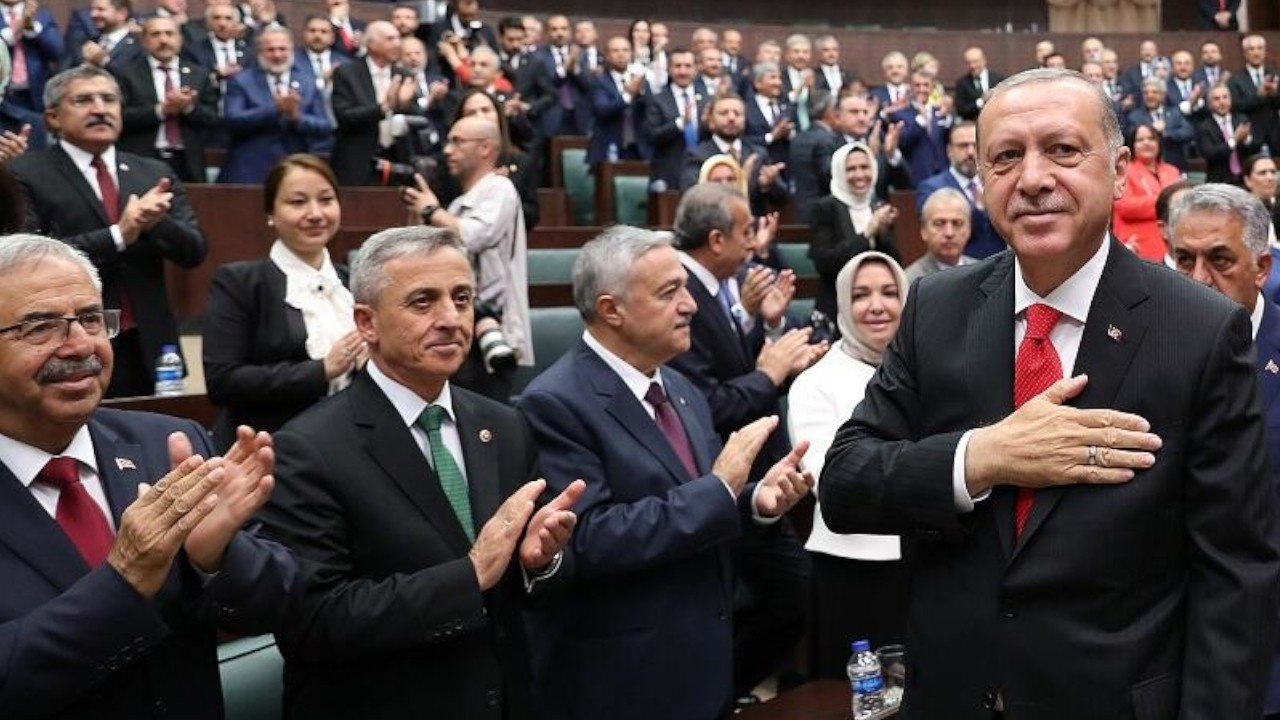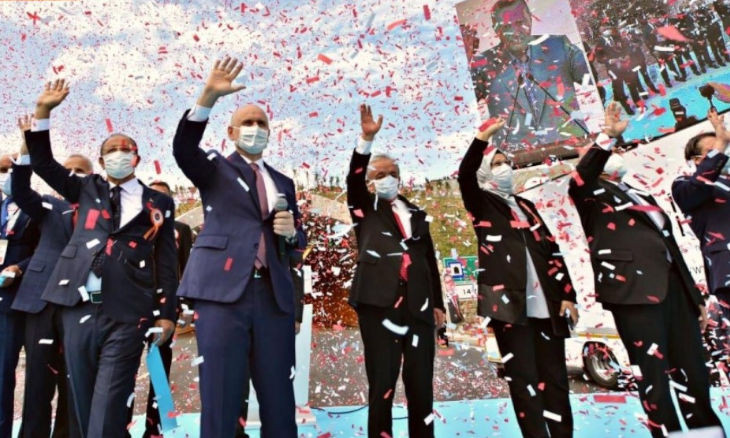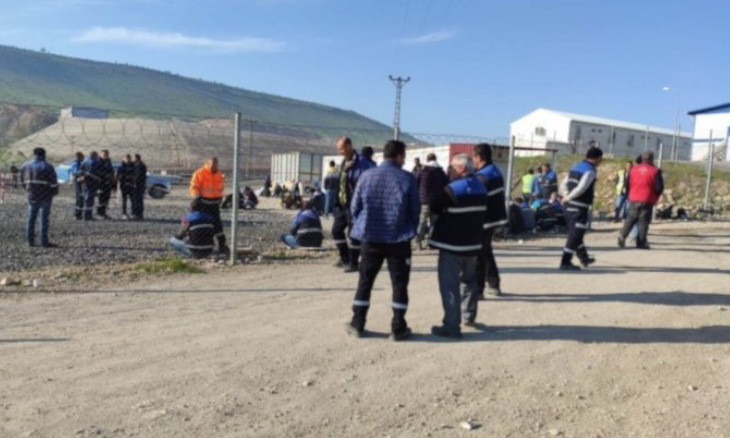‘The gang of five’: Nepotism, corruption and tender-rigging in Erdoğan's Turkey
Nepotism and corruption have become widespread in Turkey under the ruling AKP. "Even when irregularities are discovered, no legal action is taken. The government doesn’t want transparency. They don’t want people to know how their politics are financed," journalist Çiğdem Toker told Duvar English.
K. Murat Yıldız / Duvar English
Graft, bribes, and nepotism have often been synonymous with politics in Turkey since Ottoman times. For many, they have become a natural part of the process.
“If not all at least some of the population are at best indifferent to those irregularities. It has been normalized within the public mindset and our culture. This is a major problem,” Çiğdem Toker, a prominent journalist and author known for her work about graft, government contracts, and tenders, told Duvar English.
However, the fundamental problem, according to Toker, is that President Recep Tayyip Erdoğan's ruling Justice and Development Party (AKP) is “holding both the drum and the stick."
“There is no separation of powers anymore. There is no real oversight. Even when irregularities are discovered, no legal action is taken. The government doesn’t want transparency. They don’t want people to know how their politics are financed.”
Like many others, Toker pointed out that corruption and nepotism didn’t just start with this government.
“It existed before 2002, we wrote about these issues frequently. We followed numerous cases of nepotism, irregularities, and embezzlement in public tenders, especially banking scandals, and made them public. Yet, under this government, the number of cases and types of irregularities have increased dramatically as their rule has lasted quite a long time.”
“Most importantly, during their almost 20-year reign they have changed the Public Procurement Law nearly 200 times. This law now only exists on paper. The government doesn’t feel it is binding them in any way,” she added.
Countries’ future is hijacked
“They created a heaven on earth for their preferred companies with special legislation and secret contracts. With those special contracts, the future of our children has been hijacked. That money channeled to a few favored companies has been used to extend the rule of the current government” she added.
Pointing to the pressure on journalists like herself who cover these issues, Toker told that she herself is facing many trials.
“These government-allied companies want immunity like their partner politicians. In one case, two enterprises from the same holding sued me for 3 million Turkish liras. Other than that, they block access to our reports and even get them removed. Our courts are very efficient when it comes to issuing such decisions and fulfilling the requests of government-allied companies and businesspeople,” she said sarcastically.
‘The gang of five’
Among a large list of government preferred companies, five businessman and their enterprises stand out not only with regard to the amount of money they made from government tenders, but also with some very ‘special’ contacts they have, such as annual passenger guarantees at airports and bridge projects paid for in dollars.
Those businessmen and companies are Cengiz Holding chaired by Mehmet Cengiz, Kalyon Construction chaired by Cemal Kalyoncu, Kolin Construction chaired by Naci Koloğlu, Limak Holding chaired by Nihat Özdemir, and MNG Holding chaired by Mehmet Nazif Günal.
They are referred to by the opposition as ‘the gang of five,’ which the opposition parties accuse of tender-rigging and tax evasion.
World Bank report
According to a report by the World Bank, those companies are among the top ten firms globally to receive government infrastructure contracts. Similarly, a report by the main opposition Republican People's Party (CHP) points out that the government has issued 330.5 billion liras worth of tenders, excluding those below 100 million liras, and that 50 percent of those tenders were won by the same 20 companies in the last five years. Among those tenders, 24 percent were won by ‘the gang of five.’
“They gave ‘the gang of five’ tenders and contracts from energy to roads, hospitals, bridges, and tunnels. Those tenders and contracts were not fair and transparent. They were not in line with equal competition principles, laws, and regulations. These five top the global list in amount and numbers of government contracts. Thousands of businesses went bankrupt because of these irregular practices. Essentially for them, there are only five companies in all of Turkey,” CHP MP Ali Mahir Başarır told Duvar English.
'The problem is not the law'
“You are spending the public's money, so your goal is to get the best service or goods for the minimum cost. That is why we have a Public Procurement Law. The problem is not the law. The problem is that the authorities are not willing to abide by the law,” a professor of administrative law told Duvar English under the condition of anonymity.
Echoing Toker, the professor pointed to the lack of public sensitivity and awareness of the issue by saying, “Who cares about who is getting which tender except some journalists and a few intellectuals. Corruption is not only in the government, but the society is also corrupt.”
Pointing out that “the laws set the standards, but it is the practice that matters” he added that, “there is no problem with the law, but when they prepare tender specifications they point at specific companies. Only in Turkey are there companies that are established to manipulate government tenders. They participate in tenders just to ensure that one company wins them and they get their commission.”
No oversight
“Tenders are being carried out without oversight. Irregularities and corruption go unpunished. This is why they don’t care about the law anymore. The system is corrupted,” Murat Ağırel, a journalist who was recently jailed for his work, told Duvar English.
“The system is rotten. We have the appropriate laws, but it seems we also need laws that dictate how we are meant to abide by them,” he concluded.

 Five pro-gov't construction companies granted tax incentives 128 times in last decadePolitics
Five pro-gov't construction companies granted tax incentives 128 times in last decadePolitics All the president’s oligarchsWorld
All the president’s oligarchsWorld Workers protest poor conditions on pro-AKP firm's construction siteCoronavirus
Workers protest poor conditions on pro-AKP firm's construction siteCoronavirus